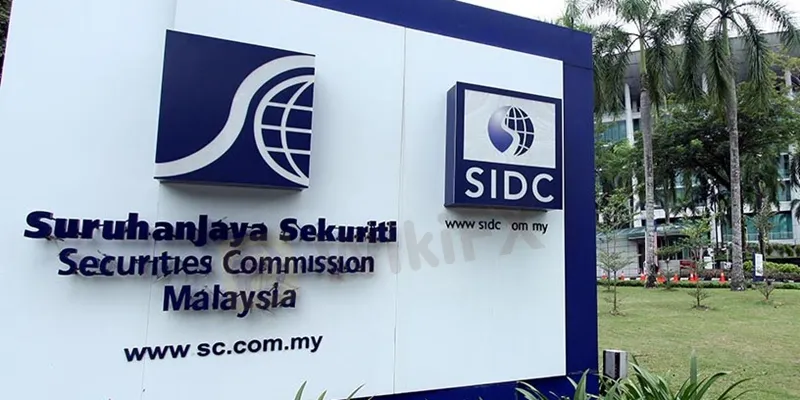简体中文
繁體中文
English
Pусский
日本語
ภาษาไทย
Tiếng Việt
Bahasa Indonesia
Español
हिन्दी
Filippiiniläinen
Français
Deutsch
Português
Türkçe
한국어
العربية
Why the SC’s Binance Investigation Should Alarm Malaysian Crypto Traders
Abstract:The Securities Commission Malaysia (SC) has launched a new investigation into Binance Holdings Ltd over its alleged unauthorised operations in Malaysia.

The Securities Commission Malaysia (SC) has launched a new investigation into Binance Holdings Ltd, one of the world‘s largest cryptocurrency exchanges, over its alleged unauthorised operations in Malaysia. The inquiry focuses on Binance’s offer of a Malaysian ringgit (MYR) trading pair, which is reportedly being executed through Papua New Guineas kina (PGK), despite the company lacking the required licence to operate locally.
This latest development marks a continuation of the SC‘s long-standing enforcement actions against Binance, underscoring the regulator’s determination to safeguard Malaysias financial ecosystem from unlicensed digital asset activities. The SC reaffirmed that it will continue to take all appropriate measures under existing legal frameworks to uphold market integrity and protect investors.
A Longstanding Dispute
The Ministry of Finance confirmed in a written parliamentary response that the SC is evaluating several factors before determining its next course of action. These include the extent of the alleged violation, the potential impact on local investors, and the wider implications for Malaysias capital market stability.
The response was issued following a question by Bagan Member of Parliament Lim Guan Eng, who had sought clarification on the SCs actions against Binance. He had raised concerns that Binance continues to offer trading in MYR/crypto pairs through Papua New Guinea, even though it has not been approved as a Digital Asset Exchange (DAX) in Malaysia.
Binances website and mobile applications remain blocked within the country, but reports suggest that some Malaysian users may still be accessing the platform via indirect channels.
Regulatory Action Since 2021
The SCs enforcement measures against Binance began on 26 July 2021, when the exchange was found to be operating illegally under the Capital Markets and Services Act 2007. The regulator issued multiple directives ordering Binance to cease all operations involving Malaysian investors.
With assistance from the Malaysian Communications and Multimedia Commission (MCMC), the SC subsequently blocked access to Binance‘s website and mobile applications. The Commission also took additional steps to curb Binance’s presence in the Malaysian market, including halting the dissemination of advertisements or promotional materials through email or other online platforms.
The regulator also restricted access to Binances Telegram groups and other messaging channels used to communicate with Malaysian investors. At the time, the SC issued a public advisory urging all Malaysian users to stop trading and withdraw their assets from the platform immediately.
Despite these directives, Binance continued to draw the attention of the SC after reports surfaced that it had maintained operations indirectly through alternative channels. The company had already been placed on the SCs Investor Alert List in July 2020, warning the public of its unlicensed status.
The Role of the Securities Commission

The SC serves as Malaysias principal authority overseeing the regulation and development of the capital market. Its responsibilities extend to licensing, supervision, and enforcement of all market participants, including digital asset exchanges.
In this context, the SCs actions against Binance are not merely procedural. They reflect a broader effort to ensure that digital asset trading in Malaysia is conducted within a secure and legally compliant framework. By enforcing licensing requirements, the SC aims to prevent illicit activities, market manipulation, and investor losses that can arise from unregulated platforms.
For Malaysian traders, these updates are far from trivial. Regulatory announcements and enforcement actions by the SC often carry direct consequences for the safety of investments. When the regulator warns against or acts upon an unlicensed entity, it signals potential risks that could include loss of funds or lack of legal recourse in the event of disputes or platform failures.
Protecting Market Integrity
Cryptocurrency trading remains a high-risk activity, especially in markets where regulation is still evolving. The SC‘s scrutiny of Binance underscores Malaysia’s cautious but firm approach to digital asset regulation. The regulators stance reflects growing global concerns about the need for proper oversight of crypto exchanges, many of which operate across jurisdictions with varying legal standards.
In reinforcing its position, the SC has repeatedly reminded the public that only platforms registered as Recognised Market Operators (RMOs) are allowed to facilitate digital asset trading in Malaysia. Currently, only a handful of exchanges hold valid DAX licences. Investors are urged to verify the regulatory status of any platform before trading, as doing so with unlicensed operators may expose them to significant risks, including fraud and loss of access to funds.
What Traders Should Take Away
Malaysian traders should remain attentive to all announcements from the SC, as these updates often signal major policy directions or enforcement actions that could affect trading conditions. Ignoring such warnings not only jeopardises individual investments but can also undermine collective efforts to build a safe and credible digital economy.
As the SC continues its investigation, the case will likely influence how Malaysia navigates the balance between innovation and investor protection in the rapidly expanding world of digital finance. For now, one message is clear: when the regulator speaks, the market should listen.

Disclaimer:
The views in this article only represent the author's personal views, and do not constitute investment advice on this platform. This platform does not guarantee the accuracy, completeness and timeliness of the information in the article, and will not be liable for any loss caused by the use of or reliance on the information in the article.
WikiFX Broker
Latest News
2 Malaysians Arrested in $1 Million Gold Scam Impersonating Singapore Officials
Exness Broker Expands in South Africa with Cape Town Hub
Fraud Mastermind Zhimin Qian Sentenced to 11 Years for $6.6 Billion Bitcoin Ponzi Scheme
Is FXPesa Regulated? Real User Reviews & Regulation Check
Almahfaza Broker – 2025 Review: Safe or Scam?
Uniglobe Markets Review 2025: A Complete Guide to an Unregulated Broker
INZO Broker No Deposit Bonus: A 2025 Deep Dive into Its Offers and Risks
Global Guide to Finding Forex IBs/Brokers — Share Your Pick and Win Big!
Trump tariffs are helping drive U.S. beef prices to new highs
BTSE Review: Ponzi Scam, KYC Verification Hassles & Account Blocks Hit Traders Hard
Currency Calculator



